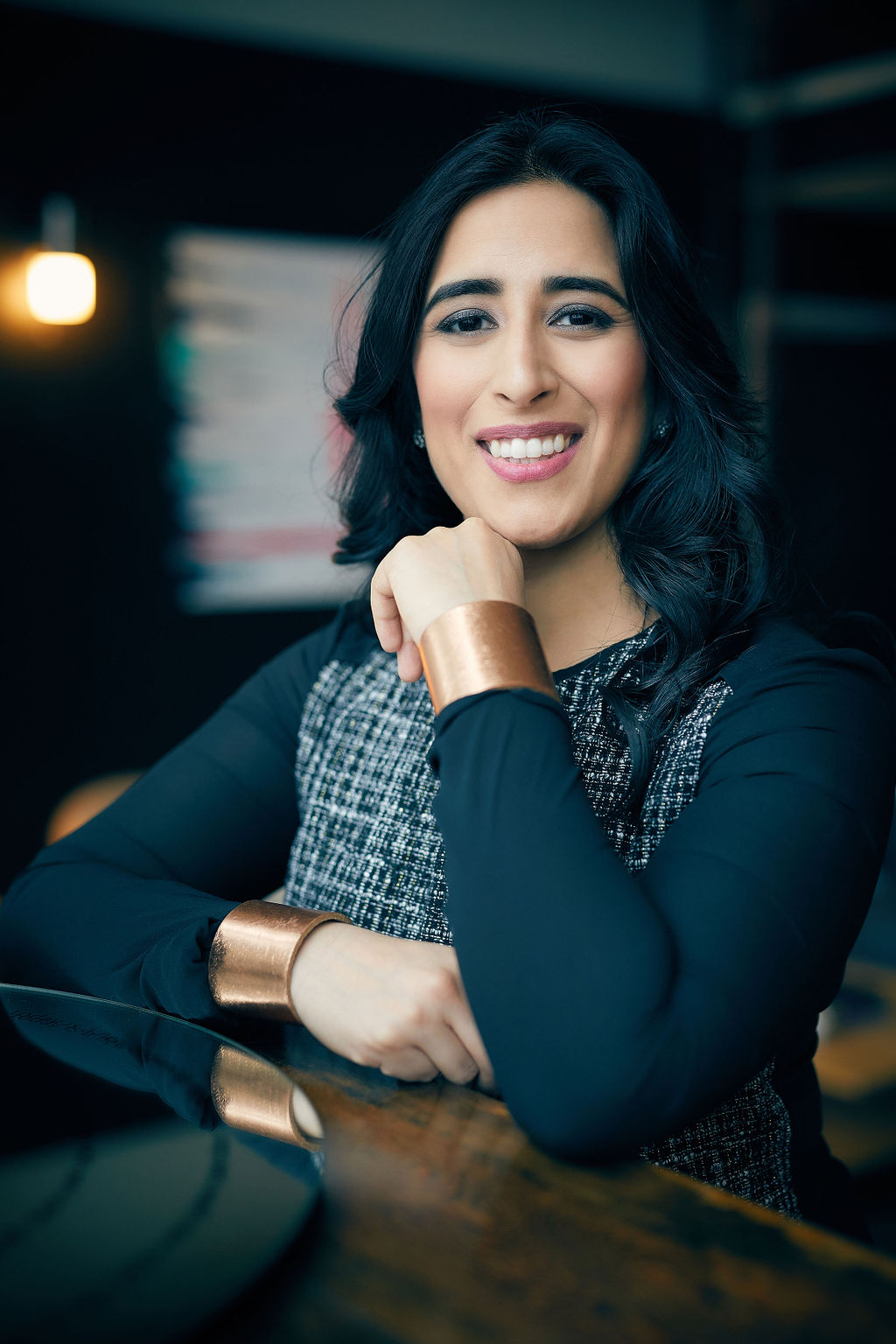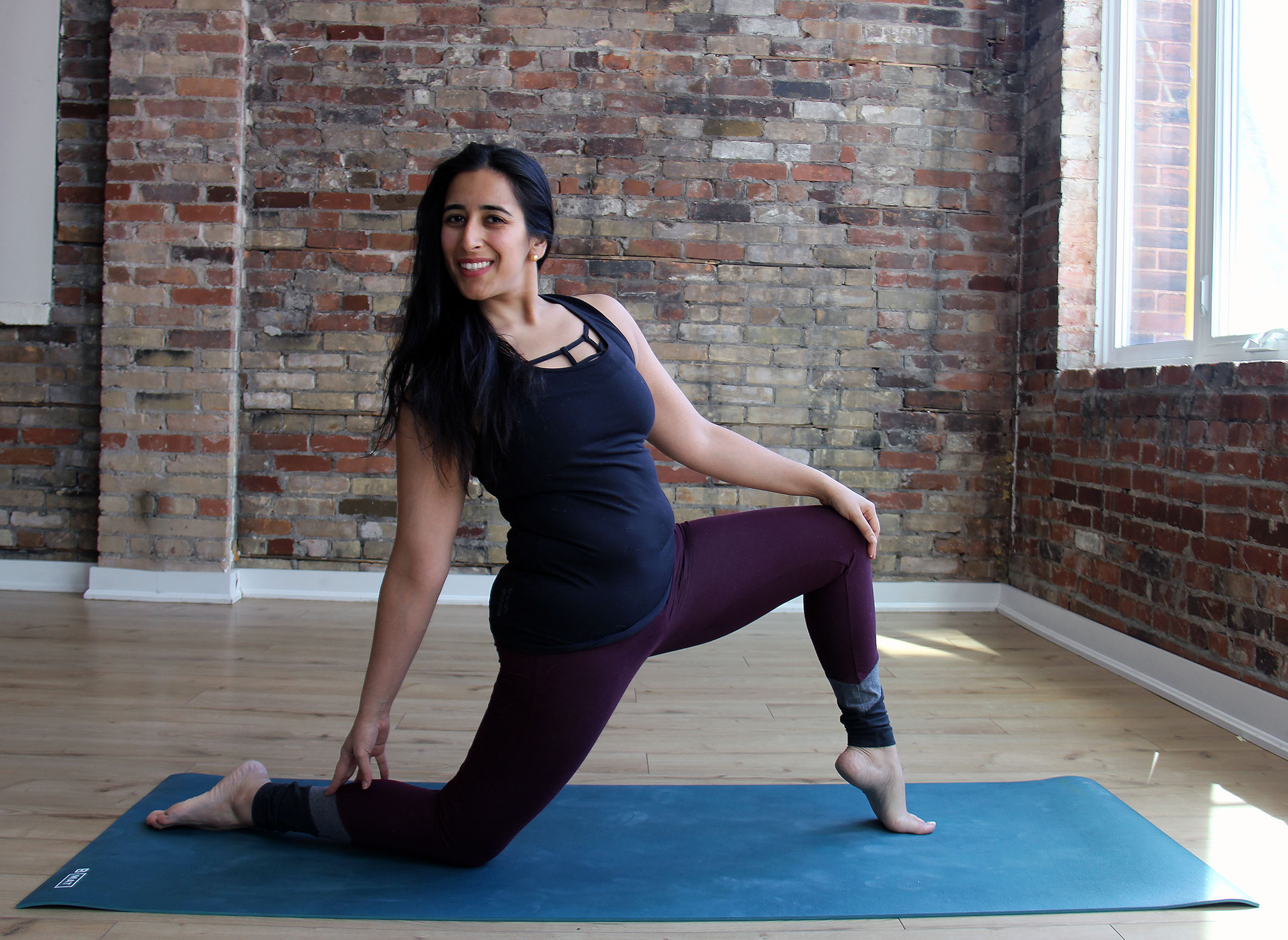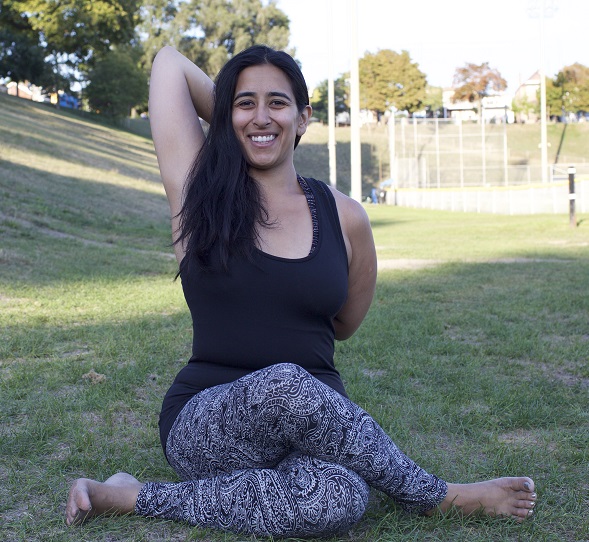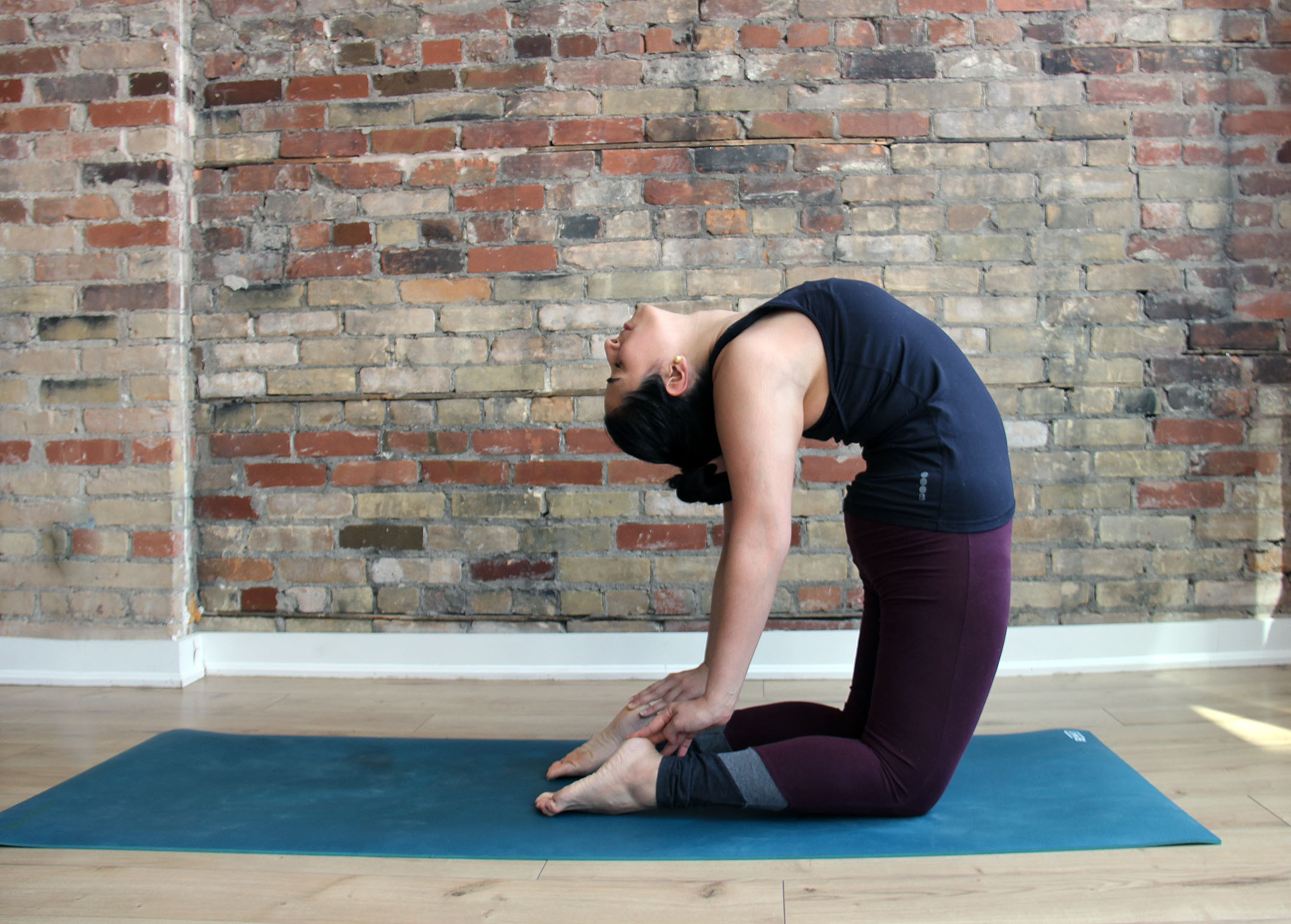Knowing that while my struggle is my own,
I am not alone on this learning journey,
and that I can offer as much support as I need
has been critical to getting me through this time.
-Niya Bajaj, Yoga Instructor
The story so far…
After studying and practicing yoga for twenty years Niya Bajaj realised she had a special love for sharing yoga with people recovering from injury, and anyone interested in finding a more grounded, fluid, sustainable approach to their practice. Discovering that she leans strongly towards yoga as a healing tool, Niya began studying restorative yoga and meditation training with Lana Sugarman in 2017. Then Niya took an introductory course on trauma sensitive yoga training with David Emerson in 2018. David Emerson is the founder of Trauma Center Trauma Sensitive Yoga (TCTSY) for the Justice Resource Institute in Massachusetts, where he coined the term “trauma-sensitive yoga.
Anyone who has been traumatized is likely to have a very distorted relationship to their body. The trauma is in the body and because of that, yoga has great relevance. Yoga goes directly to sensing and befriending the body. The most important part of healing is starting to regain ownership of one’s body and to be comfortable in your own skin. This is why Niya likes to work with her students one-on-one. These sessions allow her to develop a personalized practice for her students helping them connect body, breath and mind while addressing whatever is causing them the most discomfort – whether that’s a sore shoulder, or insomnia, or a sense of anxiety that just won’t go away.
While working with her students Niya observes their physical movement (i.e. how high can they lift their arm) and their physiological movement (i.e. how deeply can they breathe, where do they hold their breath, or scrunch up their faces because they’re starting to approach the end of a range of motion). Using insights gathered through carefully observation helps Niya creates personalised practices for her students so they end up with a trauma-informed therapeutic practice that meets them where they are – physically, physiologically and psychologically, and leaves them feeling grounded and relaxed.

Applying her trauma informed training Niya develops customized home practices for each of her students based on their lifestyle (time, space and the tools they have available), so they have something to do every day to improve their sense of well being and their quality of life.
In addition to working directly with students, Nina also shares the practices and approaches she has learned through her yoga therapy experiences with corporate audiences. She leads workshops and sessions on better breathing, digital detoxing, healthy habit formation, smarter (food) shopping as well as mindfulness, meditation and mental health.
I have been working with Niya for a few years. We have developed a unique system of understanding body movements through yoga and massage. In my one-on-one yoga class we explore the anatomy of my body movements. She designs a yoga program to release the restrictions. Working with Niya has kept me mobile. When I massage her we use yoga poses to identify restrictions that need releasing. Niya’s knowledge of both yoga and and anatomy make a perfect blend for advanced healing. Niya is an innovator in her field.
Lynne. Toronto, ON.
What is your current situation?
Before the WHO announced the pandemic I was teaching 12 in person hours a week, in addition to completing my therapeutic training practicums. Two thirds of my time was spent in one-on-one sessions with students, either in their homes or in mine. The remaining hours were a mix of leading corporate wellness practices, delivering workshops and teaching group classes in yoga and fitness studio settings.
Now, with a state of emergency declared, I have stopped teaching almost entirely. Some of my one-on-one students are immunocompromised or dealing with other health issues and so are taking extra precautions. Those that are not, live with people who are at high risk and so are also taking additional precautions. While yoga and fitness studios are closed for the foreseeable future they are exploring online class delivery, but save for one exception, none of them are paying their instructors.
This has meant a significant loss of income, but it has also meant a significant loss of connection and community, which I am tempted to argue is the greater loss.
I continue to stay in contact with my one-on-one students, and have extended an invitation to practice with me virtually. While it isn’t the same energetic experience as being in the same physical space, it still offers opportunity for connection. I also continue to teach online classes for studios that offer some form of compensation.
“I began seeing Niya 3 years ago, in the hope of becoming more flexible. We practice 1 on 1 (and it’s always apparent that she has put care and planning into our time together) and as physical issues have come and gone, my reasons for continuing keep evolving. For example, I recently injured my shoulder to the point where I couldn’t lift my arm…after working for several months with Niya, I’m pain free and my mobility has returned! The other special thing about Niya is that there is no judgment. When I fell off the practice wagon, she gently got me back up there and guided me back. During this quarantine, I’m looking forward to working with Niya over the internet. At 61, I’m feeling better and more flexible than I did when I was 40!
Joyce Tonge. Mississauga, ON
What learnings would you like to share about navigating this situation?
Agility: I am learning that there is lots of room to be agile in my teaching and that technology is not as scary as I might think it is.
Humility: my first version of any offering will likely be far from perfect, but it is better to get it done and out in the world – where I can view it with a sense of grace and humour – than to sit on something forever in hope that it will be perfect.
Community: There is an incredibly supportive global community of therapists and teachers who are generously willing to share their learnings and support those of us who are behind the digital curve.

What is the support system that is helping you get through this time?
Community: I’m incredibly lucky to be part of a cohort of yoga therapy trainees who have been incredibly supportive as we collectively navigate this new reality and what our roles as healers and teachers will look like. They are generous with sharing information, brainstorming solutions, offering their insights and experience, but most importantly being present and holding space. I am also very fortunate to have students who have confirmed that they will be rebooking their sessions with me as soon as they are able to do so. This is reassuring, both on the income front, and on the community front since we are so much a part of each other’s lives.
Family and friends around the world who cheer me on as I fumble my way through teaching online classes, and who are happy to share their technological skills and expertise as I explore this whole new world.
The wonderful global community of recipe developers and chefs who continue to generously share their #pandemicpantry thoughts and ideas. I’ve been able to use the luxury of time productively and take on a series of #pandemicprojects in the kitchen, which give me a necessary sense of creativity, competence and accomplishment – all of which are very supportive to my mental health.
Resources you would like to share with others?
These are just some resources that I’m leaning on:
– Insight Timer for guided meditations by some brilliant teachers – including Tracy Soghrati, a yoga therapist and teacher.
– Toronto Public Library for their wealth of online offerings, including materials, movies, legal resources and programming.
– Brass Vixens for very well taught online fitness classes that inspire me to keep moving in new ways.
– Evergreen Brickworks Farm in a Box to help ensure I’m eating healthy, and local product, and supporting farmer’s.
– Toronto Foundation’s Better Toronto Coalition where I can connect with other change makers who are invested in our community and learn where I can make the greatest positive difference at this time.
– Serious Eats for well researched, thoughtfully composed recipes that are thoroughly tested.
Advice you would like to offer others?
Times of great uncertainty are also times of great opportunity.
Niya Bajaj
That opportunity will look different for everyone – and there is no requirement to write the next great opus or change the world – but if people feel able, there is lots of room, and time, to explore things that they may have been toying with the idea of but couldn’t offer dedicated focus to.

What support do you need?
Concrete ways that this community can support me now include:
Spreading the word about my online yoga offerings. Currently my one-on-one sessions are offered on a PWYC basis (minimum suggested $15)
Coaching from experienced video makers/online teachers
Brand development and marketing support since NBLife is nascent at best and not being leveraged to it’s full potential
Collaboration opportunities since this is a great time to think through new ideas and offerings.
Ideas for Niya!
Niya and I met to discuss her needs. Here are some of the ideas that came out of our brain-storming session.
Create a series of videos teaching Trauma-recovery yoga : Trauma is actually residue from the past as it settles into our bodies. It’s located inside our own skin. When people are traumatized, they become afraid of their physical sensations; their breathing becomes shallow, and they become uptight and frightened about what they’re feeling inside. When you slow down your breathing with yoga, you can increase your heart rate variability, and that decreases stress. Yoga opens you up to feeling every aspect of your body’s sensations. It’s a gentle, safe way for people to befriend their bodies, where the trauma of the past is stored. Yoga has a special role to play at this time. Offer a series of short videos on any social media platform of you choice to educate people about trauma and the role of yoga in healing it. Some interesting concepts to discuss:
- Balance and clarity through a series of short yogic postures.
- Emotional Wellbeing through yoga and a series of asanas to cultivate equanimity.
- Breathing for inner joy and peace of mind.
- Release anxiety and stress with yogic breathing exercises.
Use these videos to build an email list, develop your brand and connect with yoga studios and other health and wellness professionals on LinkedIn so that you can continue to offer classes through their studios or make valuable connections to be leveraged at the right time.
Collect valuable testimonials: Niya’s work is experiential. Her service has few parallels making testimonials extremely powerful in her marketing arsenal. The testimonials presented in this interview were recorded after our brainstorming session and beautifully illustrate this point.
Work on creating a network and a following: Through a series of short videos centered around trauma recovery using yoga, Niya can create her online presence and a following. This following will become relevant in converting social media fans to customers and/ or referrals.
Pitch yourself on health and wellness shows/ podcasts/ digital publication: At this time everyone needs emotional and mental support. As a race we are grieving, for the lives that have been lost along with the lives currently in jeopardy, and exponentially more people falling sick everyday. Think of all that has been lost – the livelihoods, people’s savings, the wedding plans, the graduation ceremonies. Careers have been upended. Entire families have become destitute. This is the time to serve people because everyone is grieving and experiencing some form of trauma.
Write to podcasts, health shows, wellness based magazines and offer your support with interviews, demonstrations, articles on yoga and more.
If you have more ideas to promote Niya or know anyone that can use her help to heal and restore their lives please leave comment below. Click here for more information on the role of yoga in healing trauma and here for trauma sensitive yoga.


